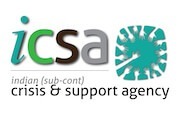
Mental Health
We improve mental health and wellbeing through strategies involving support, education, awareness and improving access to support.

Challenges in CALD Mental Health
The concept of Mental health as a form of wellness is not well understood or accepted in culturally and linguistically diverse (CALD) communities.
There is stigma, denial and shame associated with a person known to have a mental illness; the majority attitude is a binary measure between crazy or not crazy.
It is not unusual for people with mental health issues to be ostracised by their own families and isolated from community.
As such overall there is reluctance towards accessing mental health support; taken up if compelled to, such by court or employment order. Such orders are treated with trepidation as they can be used for negative consequences such as losing access to children or employment.
Providing any support is therefore can be challenging, ensuring adequate and proper support may be particularly problematic. Clients commonly attempt to drop therapeutic support as soon as practically possible.
Slowly CALD communities are becoming more informed that mental health is a key part of overall wellbeing.
However the next major barrier for CALD communities is the fundamental lack of appropriate and culturally purposed support.


A Culturally Fit Model in Mental Health
There is a recognised lack of culturally appropriate services for CALD mental health that that fully comprehend cultural challenges and situations. ICSA offers culturally fit for purpose model of support that better meet needs of CALD communities.
Our model addresses factors that are unique and relevant to people of ethnic backgrounds. We use a hybrid of individualism and collectivism, as CALD people focus on family and kinship at the core.
Language can be a significant barrier usually addressed through using bi-lingual workers and interpreters. Which remains a limited solution; proper communication requires context and vocabulary only then can therapy and treatment be fully effective.
At ICSA we work mindful of
- the limits of understanding of the person needing support
- their biases and capacity to participate
- voluntarily seeking support versus being compelled or ordered to.
We are growing a glossary of terms in languages that more accurately identify mental health terminology, given there is no equivalent in CALD languages. Without the language explaining diagnosis, symptoms, conditions and therapy options are challenging and can be flawed.
We are constantly refining and improving our support model.
Our Counselling Services
At ICSA, we consider any support to be better than no support, particularly after the COVID-19 lockdown has added complexity and grief to so many people.
Our services are culturally informed and provide specialised contextual support in the areas of:
- Cultural Counselling: eg post relationship breakdown
- Counselling & Psychotherapy
- Depression and Anxiety
- Relationship Counselling
- Family counselling (generations & extended family)
- Bereavement or Grief Counselling
- Post-miscarriage or abortion counselling
- Addiction or dependency: Drug & Alcohol, Gambling
.


Mental Health Advocacy
Our advocacy has three arms:
- Community Education more awareness and access to support.
- Support Services Working with the sector to develop better fitting and purpose driven mental health support for CALD communities. To develop more services that are culturally fit.
- CALD MH Model Ongoing improvement and development of service models.
To properly support a community; knowledge and awareness is fundamental. Failure to address mental health issues due to a lack of diagnosis or awareness can lead to more complexity including failing physical health.
Community to reach out is key, but we need to develop and grow a responsive sector. To have more quality services in cultural context and commonly understood language.
Our model of support is constantly improved through growth and more professionals looking to try and test a more tailored approach to clients rather than a one sock fits all.
We offer CALD auditing of mental health services to review how fit for purpose the service is, identify where improvements can be made with recommendations.
Supporting CALD workforces
Organisations across Australia have a growing CALD presence in their workforces.
Better support for CALD workers when they face challenging times has a benefit and gainful return in productivity and work relationships.
We can offer services to develop HR policy and practice that can be more effective and deliver face to face/online workshops.
- Employee Assistance Program (EAP) tailored to CALD workers
- CALD Clinical Supervision – download PDF
- Induction – new migrant workers
- Personal development and Performance management – acculturation for CALD workers
- CALD Workforce development
- Business and career coaching for employees

